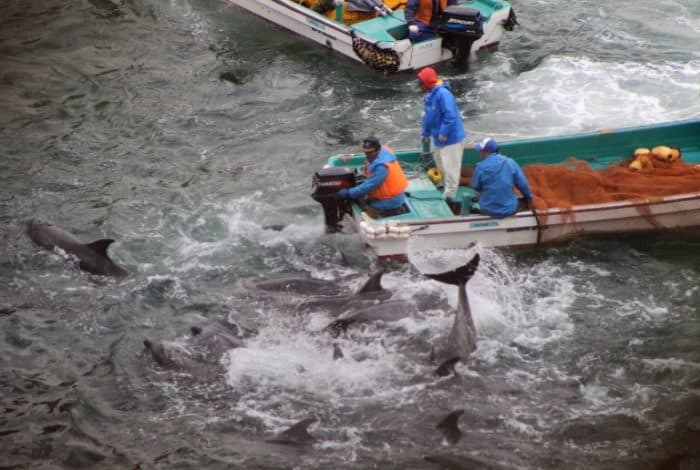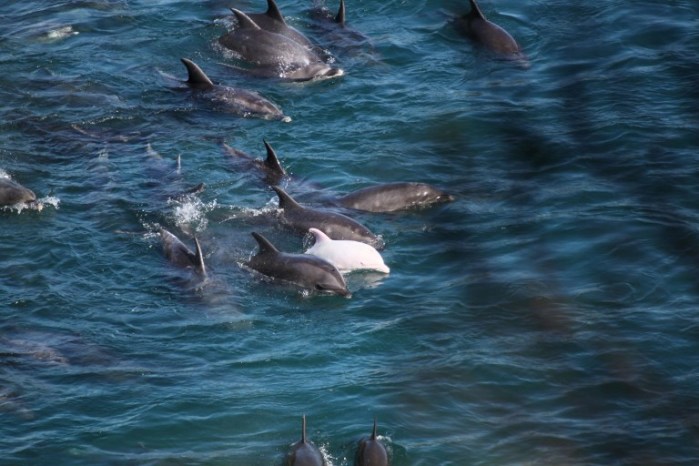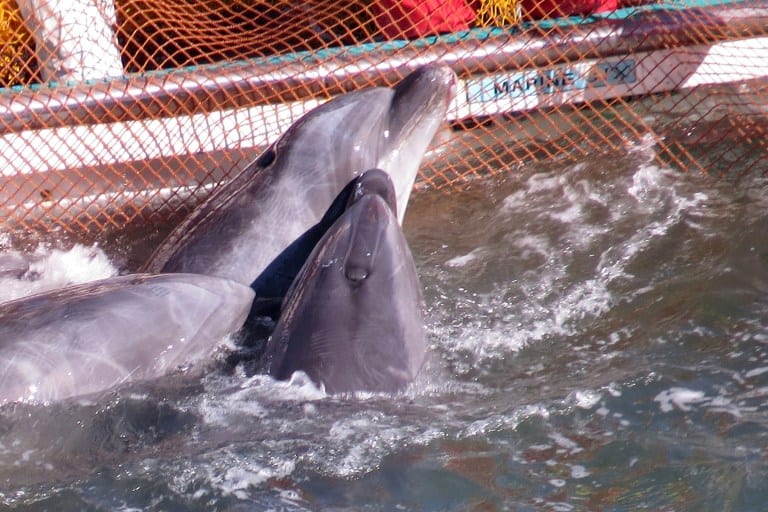TOKYO – Japanese fishermen were out at sea attempting to trap more dolphins on Wednesday, campaigners said, after the bloody slaughter of dozens of the animals the previous day was hidden from view behind screens.
Clouds of blood drifted through the waters of the cove in Taiji on Tuesday as metal spikes were driven into the spinal columns of bottlenose dolphins that had been trapped for several days, environmentalists said.
Activists from the militant Sea Shepherd group, who are keeping vigil at the site in western Japan, said several dozen animals were killed behind specially-erected tarpaulin sheets.
Video footage from the group showed fishermen in wet suits grappling with the dolphins as they herded them into the screened-off area.

The group said on its Facebook page that 41 animals had been killed so far, and 52 had been removed from the cove.
It says the fishermen sell the captive creatures to aquariums and dolphinariums, sometimes for six-figure sums.
A further 130-140 had been driven back out to sea after the slaughter.
On Wednesday the hunters’ boats were out on the ocean looking for more pods, the group said on its Twitter feed, but added that the dolphin group they had been chasing had got away.
The mass slaughter of the animals came to worldwide attention with the Oscar-winning 2009 film “The Cove,” which graphically showed the cull in the bay at Taiji.
Local officials say the slaughter is an economic necessity for an area that has little else in the way of industry and accuse campaigners of cultural insensitivity.
They insist they no longer use the bloody killing methods depicted in “The Cove,” but employ a more “humane” technique in which the dolphins’ spinal cords are severed, causing instant death.
However, the hunt continues to provoke strong reactions, especially in the West, although Japan defends the practice as a traditional – and legal – fishing method that is vital to the local economy.
Criticism on Twitter from U.S. Ambassador to Japan Caroline Kennedy that said she was “deeply concerned by inhumaneness” was met with a curt response from Tokyo, which said dolphins are an “important marine resource, which should be sustainably used based on scientific data.”







